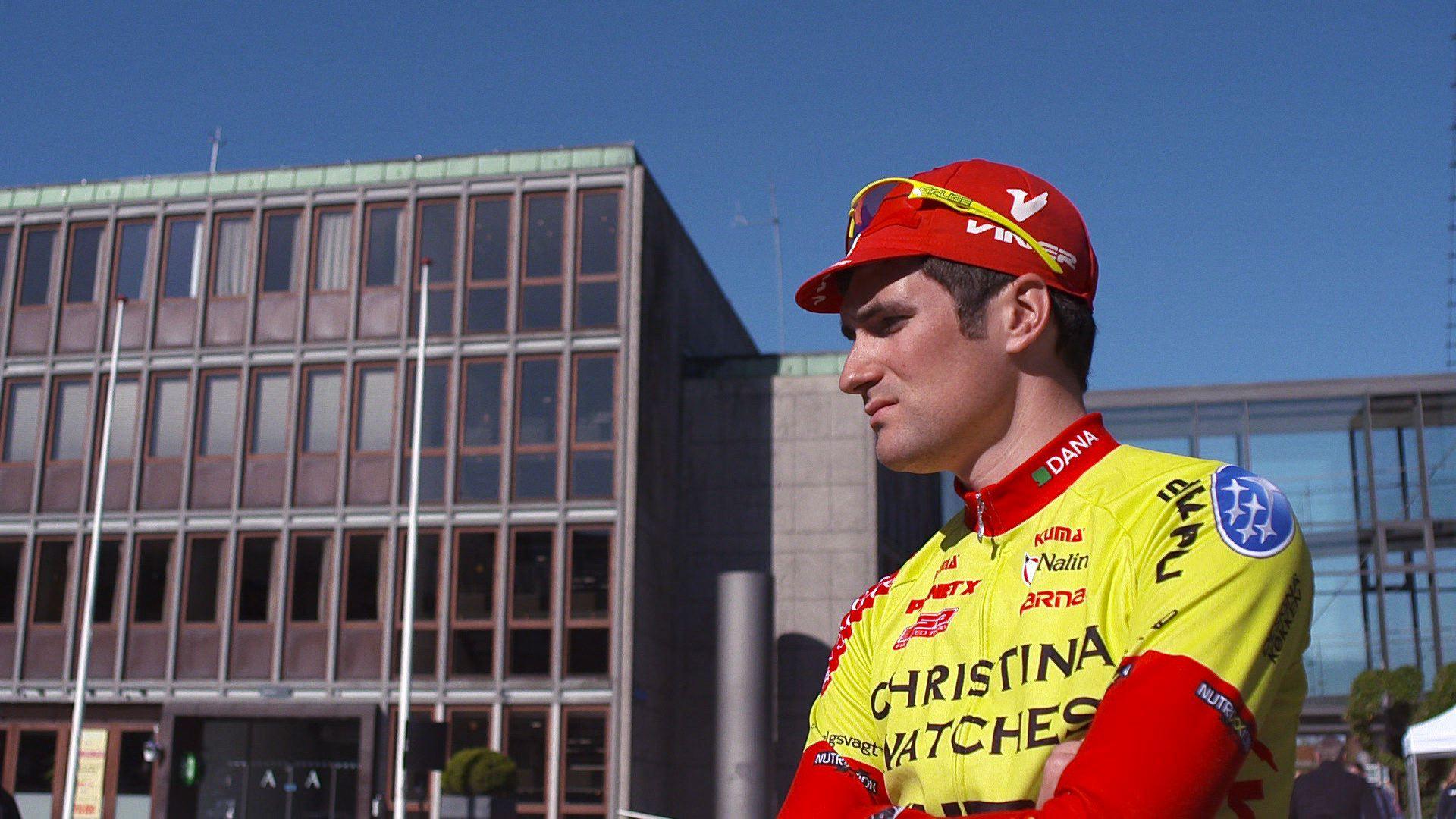Alex Dowsett: Haemophilia no barrier to cyclist's hour record bid
- Published
Professional cyclist Alex Dowsett discusses his haemophilia
"It's my way of life - on Saturday morning I'll get up and pop a needle in my arm."
No, you've not read that wrong. Pivotal to Alex Dowsett's attempt to break cycling's iconic hour record on Saturday will be an appointment with a needle in his Manchester hotel room.
Unlike generations before him however, most infamously Lance Armstrong, Commonwealth time-trial champion Dowsett will leave the hotel with his blood enhanced, but his conscience clear.
Why? Because the 26-year-old is one of 6,000 people in the UK, mostly men, who suffer from haemophilia - a potentially life-threatening condition which stops the blood from clotting properly.
'What the hell are you doing?'
Dowsett, who won gold in last year's Commonwealth Games time trial, and silver in 2010, is a trailblazer. Amid warnings of future days spent in wheelchairs, doctors recommended he take up chess or a musical instrument.
He chose professional cycling for a career instead, with sports cars as a hobby.
There are not believed to be any other able-bodied, elite sportsmen or women with the condition, which has contributed to some interesting incidents in professional cycling - a sport in which the use of needles is banned because of its drug-tainted past.
"When I was riding for Team Sky [2011-12] they didn't actually warn any of the riders that I was a haemophiliac and what that would involve," said Dowsett - who has special dispensation to inject himself every 48 hours with an engineered version of the clotting protein Factor VIII as his body doesn't naturally produce it.
"One of my team-mates - [Norwegian] Lars Petter Nordhaug - walked in when we were at the Tour of Qatar one year and said, 'Alex what the hell are you doing?' I had to explain it to him."
What is haemophilia? | |
|---|---|
A genetic blood disorder which stops the blood clotting properly. | There are two types - A and B. The majority of cases are type A. |
It is passed on by one or both parents. It mainly affects men. | It affects 6,000 people in the UK. |
The far from Perfect Hour
The need for explanations have been a theme for Dowsett, three times the British time-trial champion and a stage winner in the 2013 Giro d'Italia, of late.
Within cycling, the hour world record has a mythical status - an iconic physical challenge in which a rider has to cycle as far as he can in one hour around a velodrome.
The event is currently enjoying a renaissance - Australia's Rohan Dennis set a new record of 52.491km in February and Sir Bradley Wiggins will make his own attempt on 7 June - but not everyone has got their head around it.
"Loads of people have asked me, 'what time are you hoping to do it in?'" says Dowsett, who is planning on riding the Tour de France later this summer with his professional team Movistar.
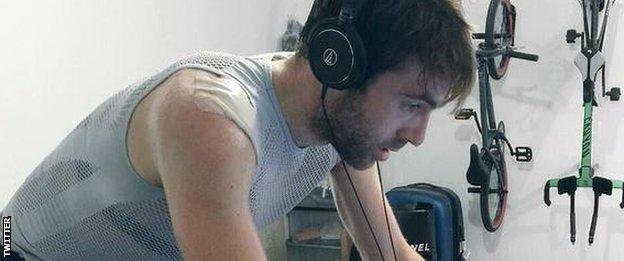
Dowsett was back riding seven days after breaking his collarbone in January
His attempt, at Manchester's National Cycling Centre, has been marketed as the Perfect Hour, external but his preparations - and the timing - have been anything but. Originally scheduled for late-February, a broken collarbone sustained in a training crash led to it being postponed.
Fit again, the Essex rider has been training at world-record pace - "it's not comfortable but it's manageable" - and is adamant the spectre of Wiggins' attempt five weeks later will not affect him on Saturday.
"It's not going to make a blind bit of difference," Dowsett says. "Somebody told me that he put up on his Instagram account, external that he was doing 20-minute blocks at 55kmh. If he's doing that then he is just going to blow whatever any of us do out of the water."
Need for speed
Dowsett's journey towards professional cycling began underwater. Swimming, because there is no impact, is the most-widely recommended exercise for haemophiliacs and Dowsett - after brief forays into rugby and football - showed talent.
'Safe' physical activities for haemophiliacs |
|---|
Archery, swimming, fishing, frisbee, golf, tai chi, snorkelling, walking, stationary bike, cross trainer. (Source - National Haemophilia Foundation, external) |
But, with dad Phil a former British Touring Cars competitor, there was always a need for speed.
"At the age of 11 my dad and his mates collectively had a mid-life crisis and started mountain biking," says Dowsett, who has owned a number of sports cars, including a Lotus Exige.
"I joined them. Two years later I asked one of the guys on the rides if I could have a go on his road bike - it all went from there.
"I've pretty much got petrol running through my bloodstream at all times. Fast cars are probably not a good idea either but it's kind of like cycling. Cycling is a very good sport for people with haemophilia until you crash."
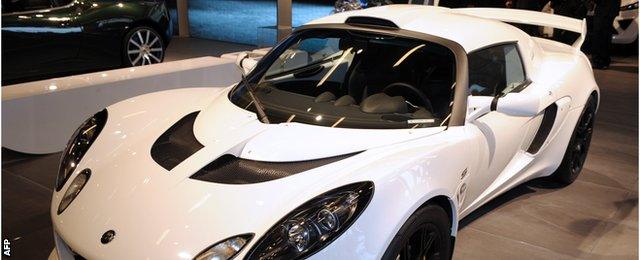
Self-confessed petrol head Dowsett counts the Lotus Exige among his former cars
Dowsett has had his fair share of tumbles. But they are treated with the same two-fingered salute he gave the nay-saying, board-game pushing doctors of his youth.
"The doctors told me when I was a kid that if I broke a bone I'd be in hospital for a month," he said.
"I've broken my shoulder blade, collarbone, elbow and two ribs and I was out of hospital within a week with all of them."
A medical pioneer
In Dowsett's lifetime the treatment of haemophiliacs has evolved considerably. In the past physical activity was all but outlawed. Now it is actively promoted and Dowsett runs the foundation Little Bleeders, external to help raise awareness.
Other notable haemophiliacs | |
|---|---|
GB Paralympian Jack Bridge, external | British rapper Professor Green, external |
Does he feel he's helped change the viewpoint of medical science? "I'd like to hope so. I am used as an example of what haemophiliacs can do nowadays.
"I was very lucky in [terms of] when I was born; had I been born five or 10 years earlier they'd have treated me with straight blood transfusions.
"A lot of haemophiliacs older than me have got HIV and hepatitis from contaminated blood. Luckily I was straight onto the synthetic medication so there was no risk at all."
The words "synthetic medication" have sinister overtones in the context of professional cycling.
But for Dowsett - and a generation of fellow haemophilia sufferers - Saturday's injection will be performance-enabling rather than performance-enhancing.
A subtle - and powerful - difference.
Cometh the hour |
|---|
Current record is 52.491km, held by Australia's Rohan Dennis. |
There have been six attempts since the rules were updated last year. |
Fellow Brits Graeme Obree and Chris Boardman have both held the record. |
Tickets for Bradley Wiggins' attempt on 7 June sold out in seven minutes. |
- Published25 July 2019
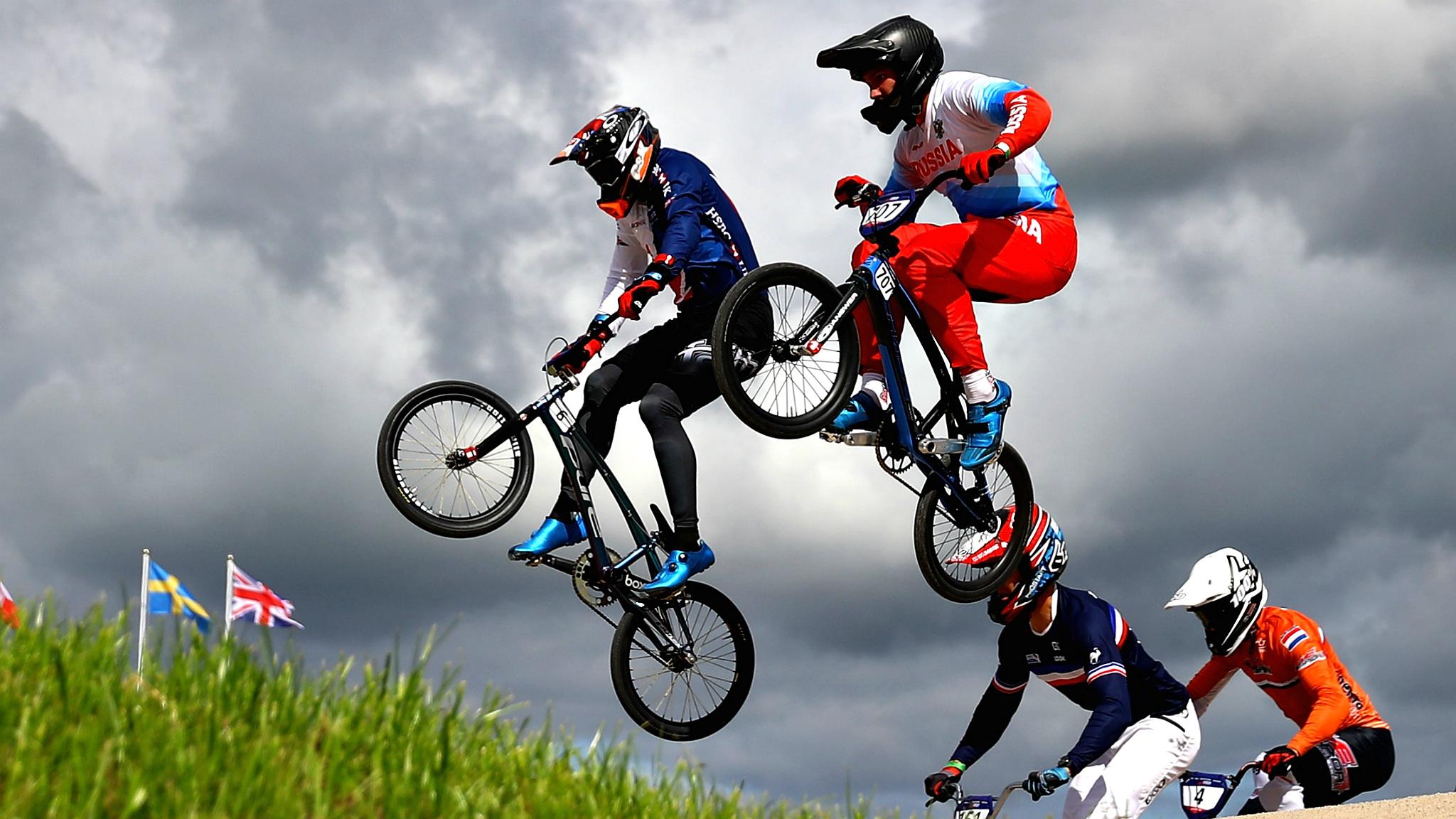
- Published31 July 2014
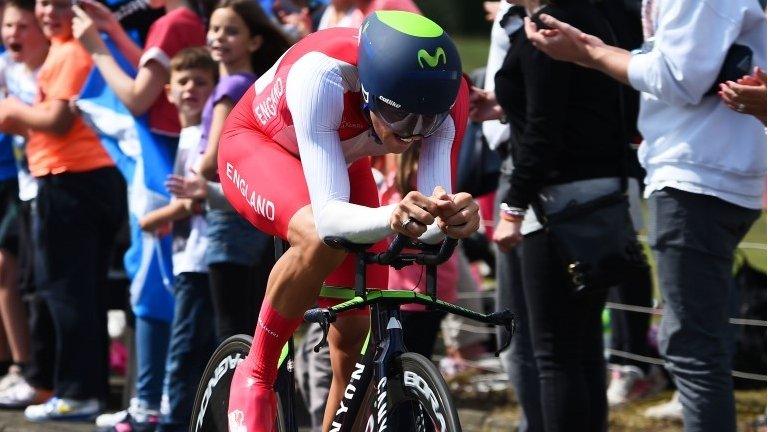
- Published13 August 2018
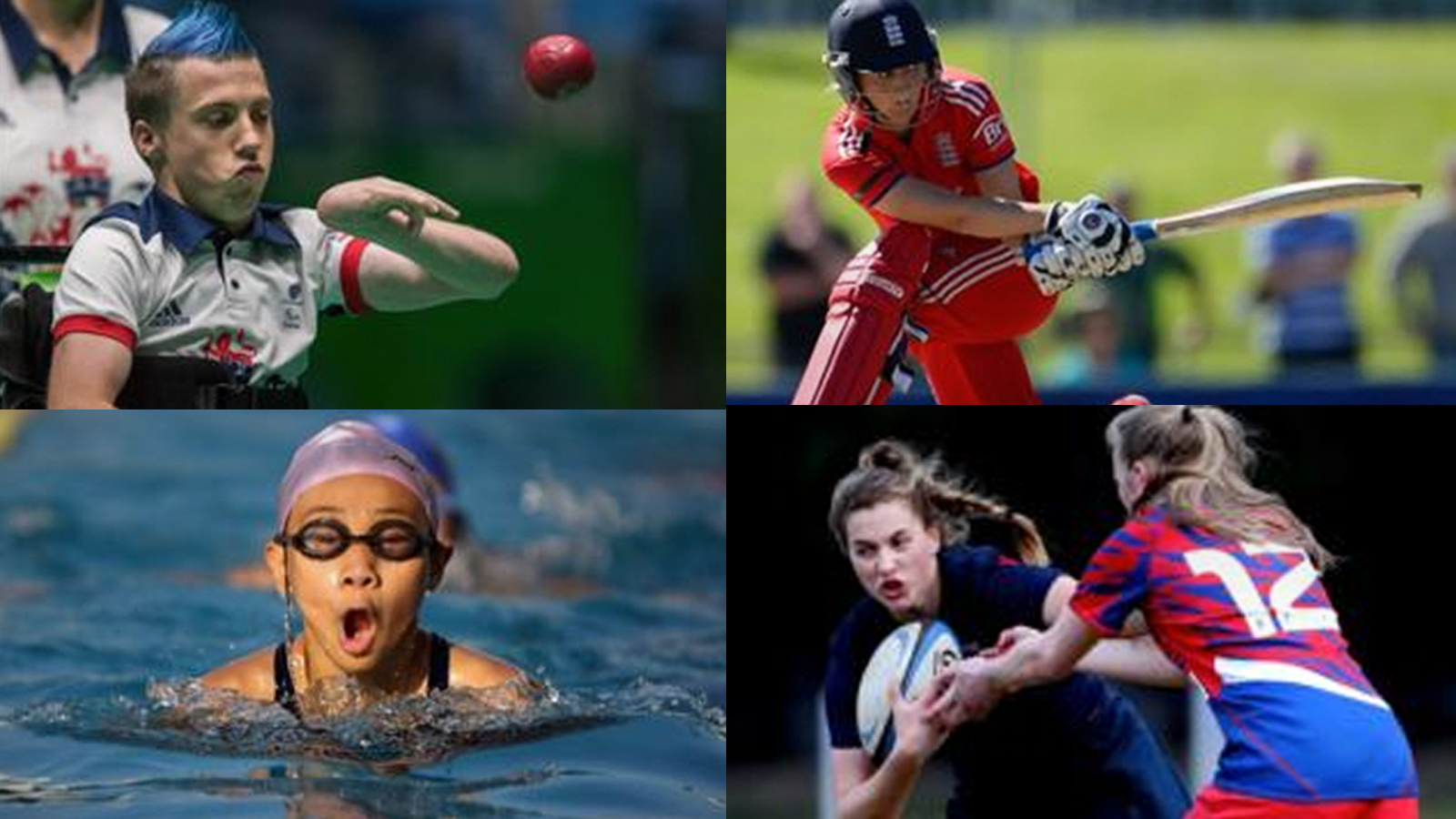
- Published25 March 2015
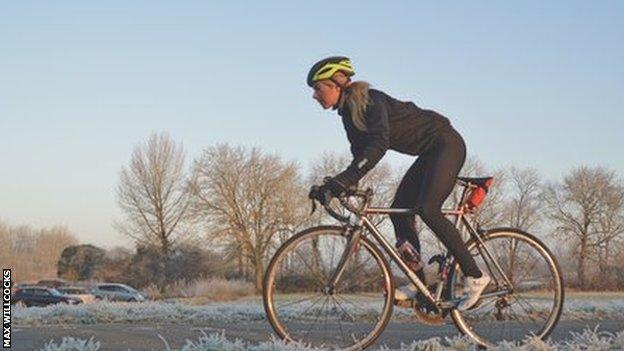
- Published6 June 2014
